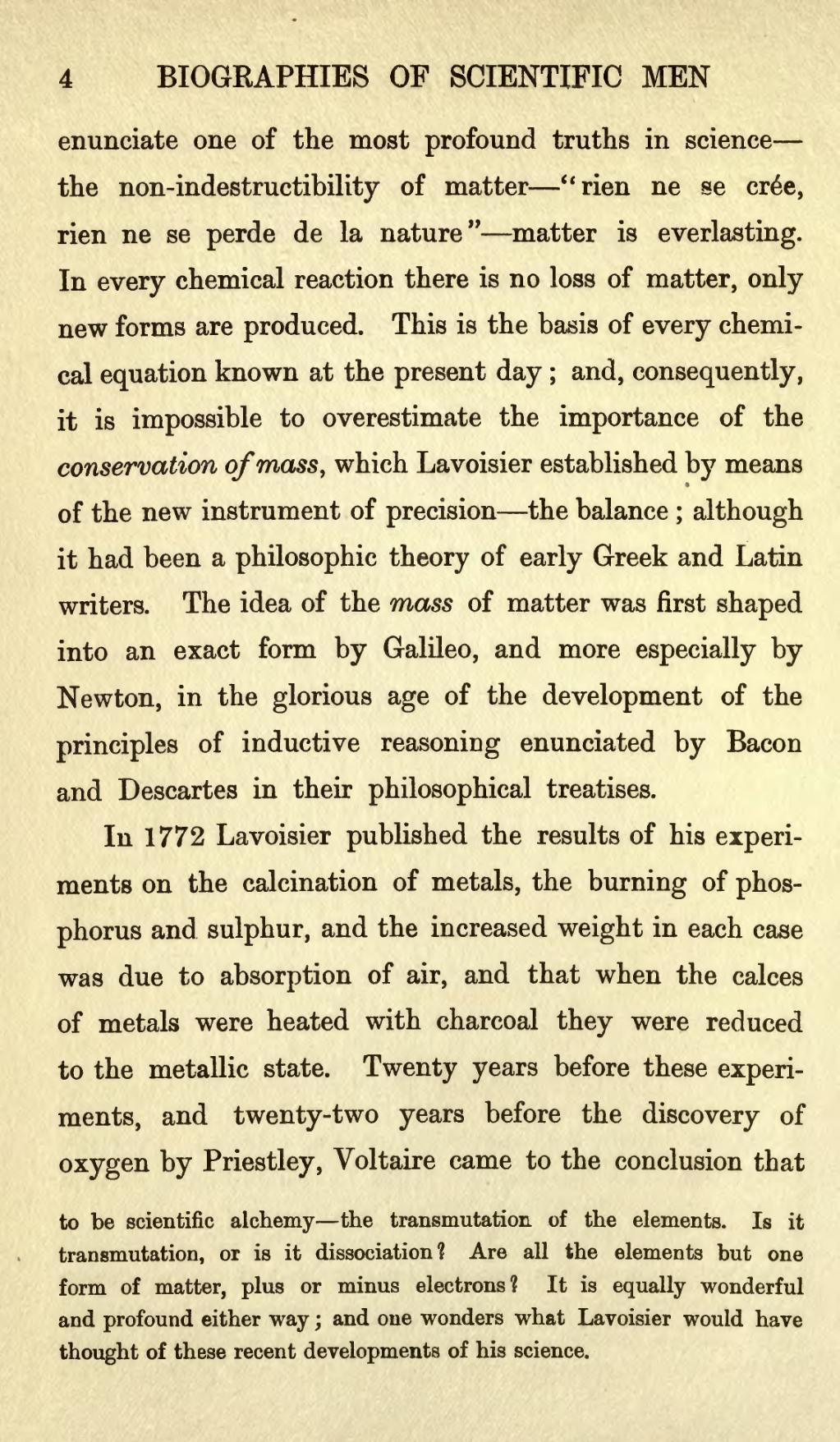enunciate one of the most profound truths in science—the non-indestructibility of matter—"rien ne se crée, rien ne se perde de la nature"—matter is everlasting. In every chemical reaction there is no loss of matter, only new forms are produced. This is the basis of every chemical equation known at the present day; and, consequently, it is impossible to overestimate the importance of the conservation of mass, which Lavoisier established by means of the new instrument of precision—the balance; although it had been a philosophic theory of early Greek and Latin writers. The idea of the mass of matter was first shaped into an exact form by Galileo, and more especially by Newton, in the glorious age of the development of the principles of inductive reasoning enunciated by Bacon and Descartes in their philosophical treatises.
In 1772 Lavoisier published the results of his experiments on the calcination of metals, the burning of phosphorus and sulphur, and the increased weight in each case was due to absorption of air, and that when the calces of metals were heated with charcoal they were reduced to the metallic state. Twenty years before these experiments, and twenty-two years before the discovery of oxygen by Priestley, Voltaire came to the conclusion that
to be scientific alchemy—the transmutation of the elements. Is it transmutation, or is it dissociation? Are all the elements but one form of matter, plus or minus electrons? It is equally wonderful and profound either way; and one wonders what Lavoisier would have thought of these recent developments of his science.
